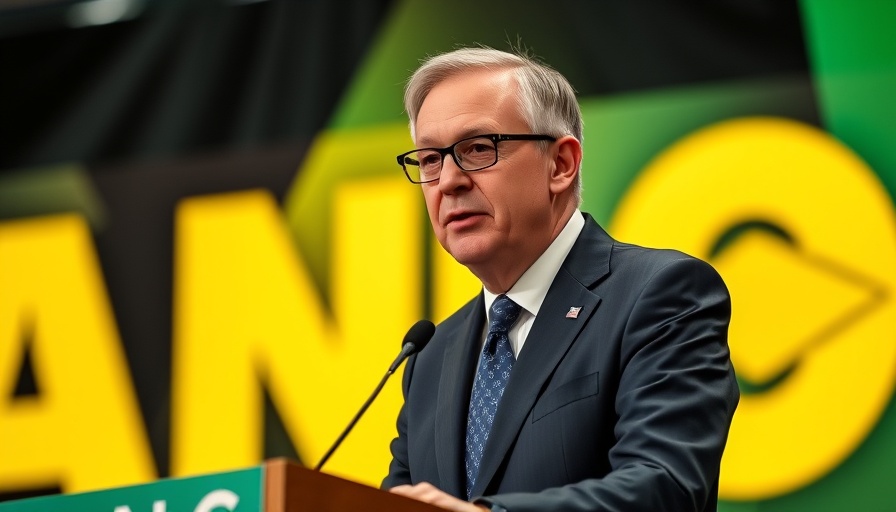
Understanding the Economy's Role in Job Creation
As South Africa grapples with an alarming unemployment rate of 32.9 percent as of the first quarter of 2025, the ANC's upcoming National Executive Committee (NEC) meeting, according to Secretary-General Fikile Mbalula, aims to address these economic challenges head-on. Mbalula emphasized a dual approach: fostering economic growth and facilitating job creation, crucial points given the current dire employment landscape.
A Pro-Poor Budget for Growth
Mbalula called for Finance Minister Enoch Godongwana's imminent budget to be notably pro-poor, reflecting a clear commitment to rectify social inequalities. This aligns with ANC's manifesto that advocates for increased social spending aimed at uplifting marginalized communities. With rising issues of economic disparity and systemic poverty, South Africa's fiscal policy must pivot towards inclusive economic strategies to stimulate job growth, especially ahead of the 2024 general elections.
The Political Context: ANC and Coalition Dynamics
The NEC meeting also comes against a backdrop of changing political alliances, where the ANC is navigating internal pressures and external criticisms from opposition parties like the Democratic Alliance (DA) and the Economic Freedom Fighters (EFF). Mbalula's acknowledgment of these dynamics underscores the necessity for the ANC not only to focus inward but also to strategize on inter-party relations as part of its broader political realignment strategy, especially leading into the next municipal elections in 2026.
Future Perspectives: What This Means for South Africa
As South Africans await actionable insights from the NEC meeting and the budget, the implications for youth unemployment and social equity loom large. The focus on economic reform is not merely about numbers but about the quality of life for countless citizens. Measures such as expropriation without compensation and land reform are pivotal latent issues that require careful deliberation to avoid exacerbating tensions within society. Observers predict that any budget aligned with ANC's goals for growth with justice may influence voter turnout positively, swaying those disillusioned by years of state capture and poor service delivery.
Diverse Perspectives on Economic Reform
Critics of the ANC's policies have continuously highlighted the historic neglect of governance issues as a root cause of the economic malaise. They argue that merely increasing social grants or shifting fiscal allocations will not suffice unless accompanied by substantive reforms in public sector accountability and anti-corruption measures. Proponents, however, reassure that the necessary reforms are on the horizon, especially under the current leadership of Cyril Ramaphosa, who has emphasized infrastructure development and clarity in economic reforms.
Conclusion: The Road Ahead for South Africa
The upcoming NEC meeting is not just another political gathering; it represents an opportunity for the ANC to revalidate its commitment to the South African populace it represents. With economic woes being a veritable ticking time bomb, tangible results must emerge not only in policy pronouncements but in actionable change on the ground. As citizens, businesses, and civil societies engage in this journey, the necessity for solidarity and constructive dialogue across all sectors of society could not be more critical, highlighting that the government's approach to these discussions could define South Africa’s socio-economic landscape for years to come.
 Add Row
Add Row  Add
Add 




Write A Comment